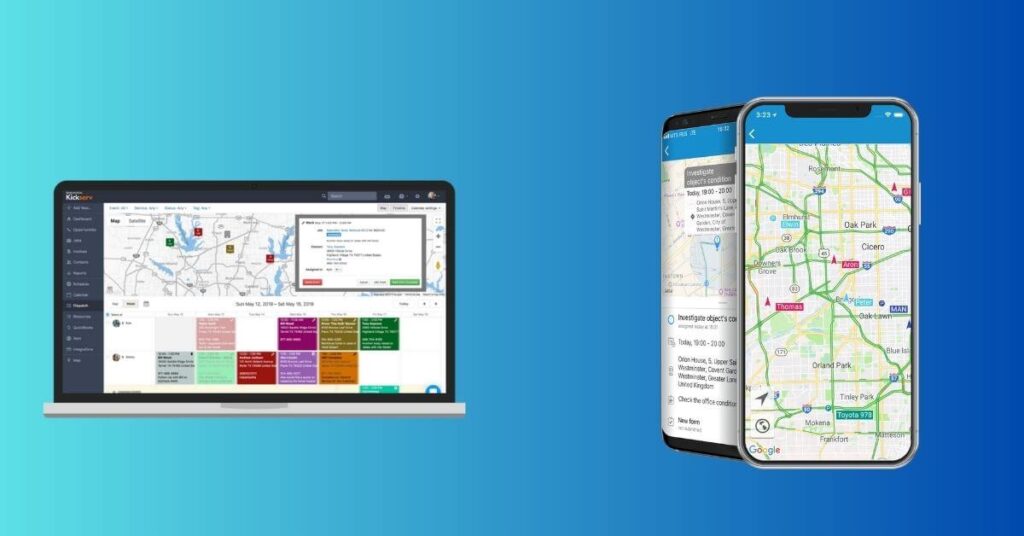Field Management Apps Revolutionize Field Operations – Field operations are an essential part of many industries, including construction, logistics, and maintenance. Managing field operations efficiently and effectively can be a challenge. Fortunately, with the advent of field management apps, businesses can now streamline their field operations and increase productivity like never before. Fieldmaster.ai provides a range of features that allow field workers to access and manage information on the go, improving communication, enhancing collaboration, and optimizing workflow. In this article, we will explore how field management apps revolutionize field operations and the benefits they bring to businesses.
Table of Contents
How Field Management Apps Revolutionize Field Operations
Improved Communication
One of the key benefits of field management apps is that they facilitate improved communication between field workers and the office. In traditional field operations, communication is often fragmented and time-consuming, with field workers relying on phone calls, emails, or paper-based forms to relay information. This can lead to delays, misunderstandings, and even errors in data entry.
Field management apps streamline communication by providing a centralized platform for field workers to input data, report updates, and receive instructions in real time. This eliminates the need for manual paperwork and reduces the chances of miscommunication. Field workers can easily access and update information on their mobile devices, ensuring that everyone in the office has the latest information at their fingertips. Additionally, these apps often have features like instant messaging or push notifications, allowing for quick and efficient communication between field workers and office staff. This improved communication not only saves time and reduces errors, but it also enhances collaboration and coordination, leading to increased productivity and customer satisfaction.
Enhanced Collaboration
Field management apps provide the necessary tools for seamless collaboration among field workers. These apps allow team members to easily communicate and share information, ensuring that everyone is on the same page. Through real-time updates, field workers can coordinate their schedules, assign tasks, and track progress efficiently.
By using field management apps, field workers can access important documents, such as work orders, safety guidelines, and client information, from their mobile devices. This eliminates the need for physical paperwork and reduces the chances of miscommunication or lost documents. Team members can collaborate on these documents, making edits and providing feedback in real time.
Furthermore, field management apps often include features like shared calendars and task assignment tools. This allows team members to view each other’s schedules, making it easier to coordinate meetings, site visits, and other activities. With task assignment tools, managers can assign specific tasks to individual team members and track their progress. This promotes accountability and ensures that all tasks are completed in a timely manner.
Optimized Workflow
Another significant way in which field management apps revolutionize field operations is by optimizing workflow. Traditional field operations often involve a lot of paperwork, manual data entry, and time-consuming administrative tasks. This not only slows down the workflow but also increases the risk of errors and delays.
Field management apps streamline and automate these processes, eliminating the need for manual paperwork and data entry. Tasks such as creating work orders, scheduling appointments, and generating invoices can be easily done through the app, saving time and reducing the chances of errors.
With a field management app, technicians can access all the necessary information and instructions on their mobile devices, eliminating the need for physical paperwork and reducing the risk of miscommunication. They can quickly update job status, record completed tasks, and submit reports in real-time, improving efficiency and productivity.
Increased Productivity
Field management apps offer several benefits that contribute to increased productivity in field operations. One of the key advantages is the improvement in communication. These apps provide real-time communication channels between field workers and their managers or supervisors. This allows for a quick and efficient exchange of information, eliminating the need for time-consuming phone calls or emails. Field workers can receive instructions, updates, and feedback instantly, enabling them to respond promptly and carry out their tasks without delay.
Furthermore, field management apps enhance collaboration among team members. These apps often include features such as shared calendars, task assignments, and document sharing. By having access to a centralized platform, field workers can easily coordinate their efforts, assign tasks to specific individuals, and track the progress of each assignment. This streamlines teamwork and ensures that everyone is on the same page, reducing the likelihood of misunderstandings and mistakes.
Optimizing workflow is another major benefit of using field management apps. These apps typically have features that automate and streamline various processes, such as scheduling, inventory management, and reporting. By eliminating manual and time-consuming tasks, field workers can focus more on their core responsibilities. This not only saves time but also reduces the risk of errors and improves overall efficiency.
Conclusion
Field management apps have revolutionized field operations in numerous industries by improving communication, enhancing collaboration, optimizing workflow, and increasing productivity. These apps provide a centralized platform for field workers to access and manage information on the go, ensuring that everyone is on the same page and has access to the latest information. By streamlining field operations, businesses can save time, reduce errors, and make data-driven decisions based on real-time information. As technology continues to advance, field management apps will undoubtedly play an even more significant role in transforming field operations and driving business success.

Lokesh Sharma is a digital marketer and SEO expert at TechJustify with a keen interest in emerging technology trends including AI, cybersecurity, and digital marketing tools for more than 5 years. He writes clear, actionable articles for tech enthusiasts and business leaders, simplifying complex topics like VPNs, automation, and generative AI.


